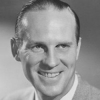Clyde Tombaugh

Clyde Tombaugh
Clyde William Tombaughwas an American astronomer. He discovered Pluto in 1930, the first object to be discovered in what would later be identified as the Kuiper belt. At the time of discovery, Pluto was considered a planet but was later reclassified as a dwarf planet. Tombaugh also discovered many asteroids. He also called for the serious scientific research of unidentified flying objects, or UFOs...
NationalityAmerican
ProfessionScientist
Date of Birth4 February 1906
CountryUnited States of America
Clyde Tombaugh quotes about
When I was in the fourth grade, I became intensely interested in geography and I learned it well.
When the temperature is freezing, it's a bit hard on your fingers, but I was interested in putting down what I saw. And that's what paid off.
That's the way I got along in life. I don't ever remember being particularly jealous of anybody, because I figured if I can't do it myself, I don't deserve to get it.
By the time I was in sixth grade I could bound every country in the world from memory.
I guess the two things I was most interested in were telescopes and steam engines. My father was an engineer on a threshing rig steam engine and I loved the machinery.
You have to have hope. Otherwise, I don't think you could handle it. Of course, you have to have both luck and pluck to make it.
I doubt that the phenomenon was any terrestrial reflection, because... nothing of the kind has ever appeared before or since... I was so unprepared for such a strange sight that I was really petrified with astonishment.
You have to compete with others in the field. Sometimes the competition gets pretty fierce because you're competing for funds or grants to do your work, the financial work.
I used to think about how nice it would be to visit the planets. Of course, I didn't expect to see in my lifetime what has happened. I knew it would happen some day, but it came along faster than I at first thought.
I was interested in telescopes and the way they worked because I had an intense desire to see what things looked like, so I learned how to use telescopes and find things in the sky.
I realized that I would have some very tough sledding, and I was very discouraged because I didn't see much hope of getting into the field I wanted to get into with no college education.
How does a pansy, for example, select the ingredients from soil to get the right colors for the flower? Now there's a great miracle. I think there's a supreme power behind all of this. I see it in nature.
It was depressing, ... I worried about how I would make a living. I didn't want to stay on the farm. It didn't offer the challenge I wanted and yet, without a college education, I felt that I was really out of luck.
I was always looking ahead. I used to do all kinds of things for entertainment. When I was young, we had no radio, no TV. We were 30 miles from the public library, out in the sticks in Western Kansas, and so I'd do arithmetic exercises.